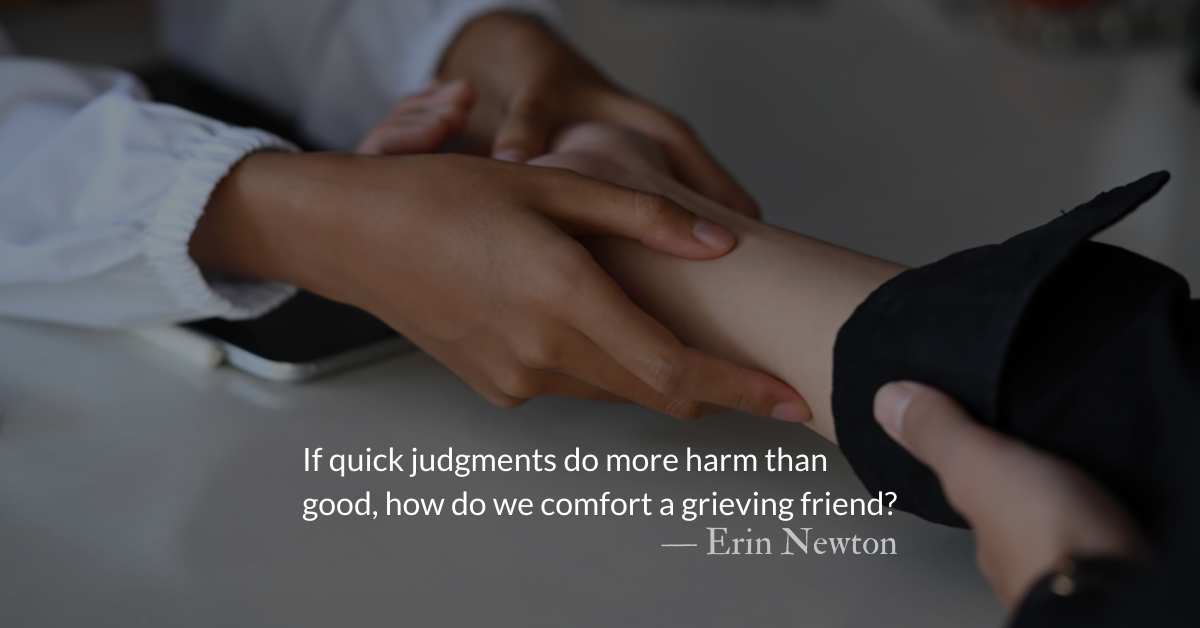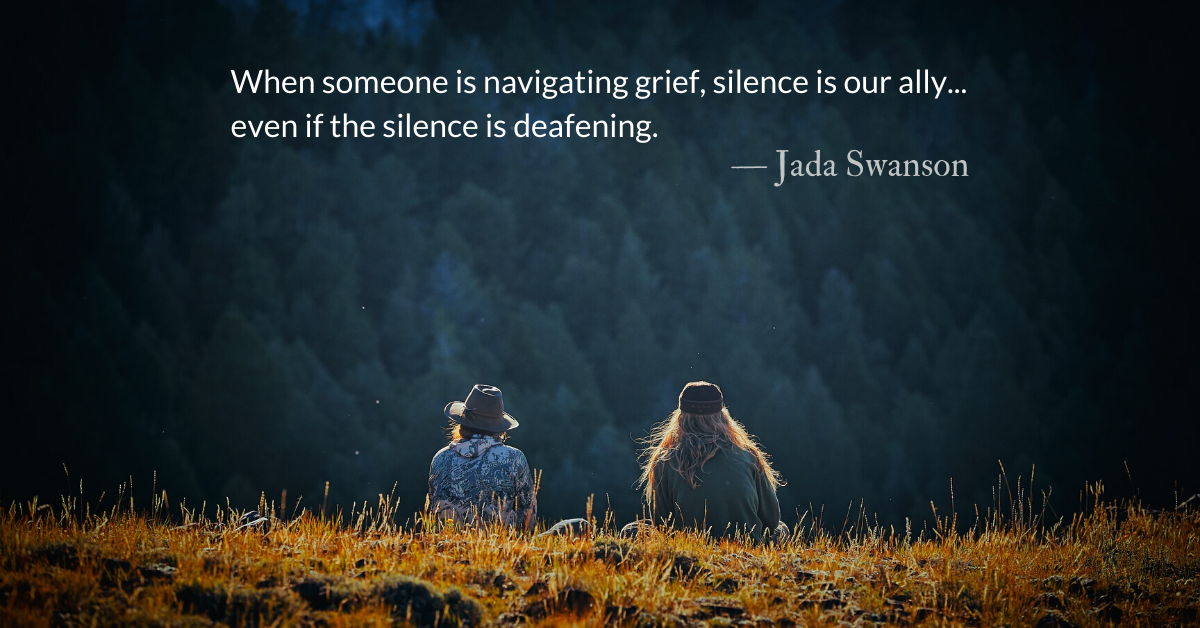Scripture Focus: Job 5.27
“We have examined this, and it is true.
So hear it and apply it to yourself.”
Reflection: Adding Insult to Injury
By Erin Newton
There’s no nice way to say this, but Job’s friends are jerks. Maybe they mean well or have a serious deficiency of tact. In the midst of suffering in epic proportions, Job endures painful chapters of the worst advice and lack of comfort by the handful of men in his life. It’s like one “bad take” after another.
Modern forms of communication (texting, messaging, tweeting) have created a form of terseness that does not really benefit the other person. Our words are often formed under the desire to create something memorable, quotable, something that can easily go viral. A pithy statement is formed, we pat ourselves on the back and declare to the world “apply it to yourself.”
Eliphaz seems to view the suffering in Job’s life as a simple equation. After two chapters describing how Job could correct his situation, the final words end with the statement that there is no way he could be wrong and all Job needs to do is apply this golden advice to himself.
Jesus confronted this same mindset in his disciples, “Rabbi, who sinned, this man or his parents, that he was born blind?” (John 9.2). There is an innate desire for life to be a simple “if-then” scenario. If you are poor then it must be strictly your fault. If you are infertile, it’s probably a lack of faith. If you are single, you just need to pray more. These if-then statements are absurd and completely wrong.
If quick judgments do more harm than good, how do we comfort a grieving friend? I learned through hard situations: sitting with a friend after the death of her father, speaking at a funeral for my friend’s infant child, and waiting for hard diagnoses for my own kids. One of the greatest things we can do for those in grief is to sit and listen. As Paul instructed, “mourn with those who mourn.” (Romans 12.15)
Grief is messy and gray. No black and white solutions. No terse statements will do. Words are empty unless we let them know we are a beating heart, a living soul and a listening ear. The best company during grief are wounded healers, friends who have been down that dark road too.
Eliphaz should have modeled the character of the Wounded Healer, Jesus. “When Jesus saw her weeping… Jesus wept.” (John 11:33, 35). Be quiet. Listen without judgment. Sadness takes time.
Divine Hours Prayer: The Request for Presence
Save me, O God, by your Name; in your might, defend my cause.
Hear my prayer, O God; give ear to the words of my mouth. — Psalm 54.1-2
– From The Divine Hours: Prayers for Autumn and Wintertime by Phyllis Tickle.
Today’s Readings
Job 5 (Listen – 2:29)
Psalm 9 (Listen – 2:21)
Read more about When Help Doesn’t Help
Although Eliphaz meant well, his response was insensitive to his friend’s plight.
Join us! Walk through the Bible with us…
We help prompt a daily rhythm…small blocks of time for reading, prayer, and thoughtful reflection throughout your day.








